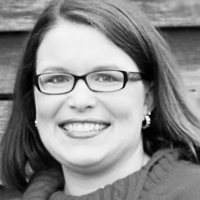Question
What service delivery models are typically used with clients with cognitive-communication disorders?
Answer
There are three models of service delivery for cognitive-linguistic communication therapy: the medical model, social model and rehabilitation model.
The medical model focuses on the actual impairment. The physician determines whether services will be provided and most of the time this model is used in acute care hospital settings. The clinician only has a few days to provide services in many situations.
The social model focuses on a disabling society. The focus of the intervention is on the interaction between the person and the society and the reduction of those barriers. The patient or the client actually determines what services are provided. This model is typically seen in residential or community settings.
The model that SLPs typically utilize is a rehabilitation or rehabilitative model. The focus should be on the person’s inability to function in everyday activities or activities of daily living (ADLs). The focus of intervention in a rehabilitative model is on the person who has the disability and how they are going to improve their function in their ADLs. It is more of a collaborative approach because the professional and the patient work together to determine what services are provided.
This model is typically used in rehabilitation units, post-acute care centers, skilled nursing facilities that also provide step down units (a.k.a. swing bed units) or rehab with patients who have had hospitalizations. In order to have an effective rehabilitation model we need to know the patient’s prior level of function (PLOF). Was the patient able to communicate appropriately with the caregivers? Was the patient able to handle their own finances or their own medication? What was the patient’s diet like prior?
Under the rehabilitation model, goals will focus on recouping the skills that have been lost in order to get the patient back to their prior level of function. The goal is for the patient to go back to the most independent level or least restrictive level of care at discharge.
Amber Heape is a dedicated advocate for the necessity and skilled nature of therapy services. She is the Regional Clinical Specialist for a large healthcare company, where she works with SNFs in 3 states on documentation compliance, clinical education, and clinical programs for PT, OT, and ST. She co-authored the company Trach and Vent Program as well as the Dysphagia Program.

